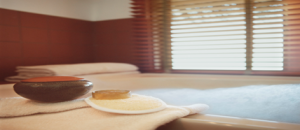Compliments of :
Seniors Tip: Bathing Tips to Help an Elderly Relative
Joke or Quote of the Month:Remember to Care for Yourself
Heart Healthy Recipe:Crowd-Pleasing Turkey Chili
Did You Know? What Should a Person do After Surviving a Heart Attack?
10 Tips to Boost Your Memory
 When we reach our mid-30s, our memories begin to fade and we’ll continue “forgetting” as we age. That’s normal. As we age, we become busier and have more to remember. Here are 10 tips to boost memory:
When we reach our mid-30s, our memories begin to fade and we’ll continue “forgetting” as we age. That’s normal. As we age, we become busier and have more to remember. Here are 10 tips to boost memory:
Get organized. Make a list of tasks, or jot things on your calendar or in your daily diary. Don’t put things off; do them as soon as possible so you won’t forget.
Take time to remember things. Normal aging changes the brain, making your mind less efficient in processing new information. Slow down and pay full attention. Repeat what you want to remember several times to yourself and you probably won’t forget it. Listen carefully during conversations to remember details and people’s names.
Diet is important too. Fruits and vegetables provide antioxidants – substances that protect and nourish brain cells. Essential fatty acids found in fish and vegetables also protect and maintain proper functioning of the brain. And drink water: dehydration causes fatigue, making it hard to concentrate.
Mental exercise stimulates the brain’s nerve cells to produce new dendrites (connections between nerve cells that allow cells to communicate with one another). This helps the brain store and retrieve information, at any age. Challenge yourself with ongoing education, games and sports that require strategy and concentration (like bowling, golf, chess, crosswords, puzzles), start a new hobby, learn a new language, or learn to play a new instrument.
Regular, moderate, physical activity increases the neurons (nerve cells) in the brain. Exercise improves cardiovascular health, which improves blood flow to the brain. Those who stay physically fit, also remain mentally fit.
Learn to manage stress. Stress and anxiety interfere with concentration, so it’s important to have relaxation time. Spend at least 15 minutes daily to breathe deeply and clear your mind. Soak in a hot tub or treat yourself to a massage. Take regular vacations.
Think positive. Being happy and having a positive outlook makes you more alert. When you’re alert, your senses are more open to receiving information.
If you are worried about your memory, get evaluated by your doctor or a specialist. Many factors contribute to memory problems. These include using certain medications, poor vision and hearing, vitamin deficiencies, fatigue, depression and stress. Depression, in particular, can cause problems with memory and concentration; it’s often mistaken for Alzheimer’s disease in older adults.
Get regular medical checkups. Abnormalities in blood pressure, cholesterol levels, blood sugar levels, and thyroid gland can affect your brain’s functioning.
Don’t worry about being forgetful. You’re not the first person to drive off with your coffee cup sitting on the roof of your car. Unless you feel your forgetfulness is unusually frequent, don’t panic.
Staying calm improves alertness and, therefore, keeps your memory sharp.
Article by Eve Lees, Reprinted with Permission from Senior Living Magazine, www.seniorlivingmag.com
Heart Healthy Recipe: Crowd-Pleasing Turkey Chili
 This must-try chili is so versatile, the possibilities are endless. It can be enjoyed on its own or transformed into other dishes. Just one jalapeño pepper adds some heat to this recipe. Handle it with care by washing your hands well before and after touching it. Makes 8 servings.
This must-try chili is so versatile, the possibilities are endless. It can be enjoyed on its own or transformed into other dishes. Just one jalapeño pepper adds some heat to this recipe. Handle it with care by washing your hands well before and after touching it. Makes 8 servings.
Ingredients
1 pkg (1 lb/500 g) lean ground turkey
2 tsp (10 mL) canola oil
1 onion, finely chopped
1 green pepper, chopped
4 cloves garlic, minced
1 tbsp (15 mL) chili powder
2 tsp (10 mL) dried oregano
1 tsp (5 mL) ground cumin
1 jalapeno pepper, seeded and minced
1 can (28 oz/796 mL) diced tomatoes
1 can (19 oz/540 mL) red kidney beans, drained and rinsed
1/2 cup (125 mL) sodium reduced vegetable broth or water
1/4 cup (60 mL) tomato paste
2 bay leaves.
Directions – In a large saucepan, brown turkey, breaking up with spoon. Drain using a colander and set aside. Return the empty pot to medium heat. Add oil and cook onion, green pepper, garlic, chili powder, oregano and cumin for about 3 minutes or until softened. Stir in turkey and jalapeno pepper and cook, stirring for 1 minute. Add tomatoes, beans, broth, tomato paste and bay leaves. Bring to a boil; reduce heat, cover slightly and simmer, stirring occasionally for about 20 minutes or until thickened. Remove bay leaves before serving.
Nutritional Information Per Serving (1 cup / 250 mL) – Calories 185, Protein 16 g, Total Fat 5 g, Saturated Fat 1 g, Trans Fat 0 g, Cholesterol 49 mg, Carbohydrates 19 g, Fibre 6 g, Sodium 325 mg, Potassium 600 mg.
Recipe developed by Emily Richards, P.H. EC. for Health Canada and the Heart and Stroke Foundation. Reprinted with Permission from The Heart and Stroke Foundation.
Seniors Tip: Bathing Tips to Help an Elderly Relative
 Bathing Tips to Help an Elderly Relative Caring for an aging family member comes with numerous responsibilities and often requires thoughtful considerations. The lighter tasks such as home maintenance and preparing meals usually comes naturally, but assisting an elderly parent with bathing may conjure up feelings of fear or embarrassment.
Bathing Tips to Help an Elderly Relative Caring for an aging family member comes with numerous responsibilities and often requires thoughtful considerations. The lighter tasks such as home maintenance and preparing meals usually comes naturally, but assisting an elderly parent with bathing may conjure up feelings of fear or embarrassment.
To better protect the person’s dignity and privacy, look to the person you are caring for to show you the skills they are able to perform and also where you can jump in to assist.
Here are a few more helpful tips:
- Encourage the family member to wrap a towel around themselves and secure it with a clip or with Velcro tabs.
- Try to prep the bath and showering area ahead of time before assisting the individual into the washroom.
- A hand-held showerhead can greatly assist in tasks such as rinsing off body wash or washing out shampoo
- Consider installing grab bars in the shower or toilet area. For example, the Delta Faucet line offers decorative grab bars that enhance the décor of one’s bathroom space while meeting the ADA requirements. Find more at www.deltafaucet.ca
- Test the water temperature with your elbow or forearm to make sure it is a comfortable temperature.
In addition to these tips, relax in the knowledge that increased comfort in the bathroom will come with time. Immediately however, there is a lot of joy in assisting a loved one who needs you.
Article by www.newscanada.com
Did you know? What Should a Person do After Surviving a Heart Attack?
What should a person do after surviving a heart attack?
My husband recently had a heart attack and I’m worried it could happen again. What can we do to help prevent another incident?
Once you’ve had a heart attack you are at increased risk for another. Which is why it’s even more important to take your medication and make some lifestyle changes.
Adopting healthy behaviours can help lower your husband’s risk and help you make healthy changes at the same time. These include exercising regularly (at least 150 minutes each week), eating a healthy diet (five to 10 servings of vegetables and fruit each day) and reducing stress. Being smoke free is also really important as is limiting alcohol consumption. Take these changes one step at a time.
Also, a cardiac rehabilitation program can help your husband recover to the best extent possible and support him to adopt and maintain healthy changes. Rehabilitation makes survivors feel better and improves their quality of life. Taking advantage of these programs when available is essential because they are shown to improve participants’ health and to lower mortality by as much as 25 per cent. If he has not been sent on to a cardiac rehabilitation program ask your doctor to do so.
Thanks to medical developments over the past 60 years, we are making progress and reducing the odds of serious problems in people who suffer a heart attack. Advances in prevention, surgical procedures and drug therapies have helped make this possible – many of which were supported by research funded by the Heart and Stroke Foundation. Since its inception, the Foundation has committed more than $1.39 billion to heart and stroke research, and helped create the 165,000 survivors of heart disease and stroke who went home to their families last year.
To learn more visit www.heartandstroke.ca
Dr. Beth Abramson, Heart and Stroke Foundation, www.newscanada.com
Joke or Quote of the Month: Remember to Care for Yourself
“If you don’t take care of your body, where will you live?”
Author Unknown